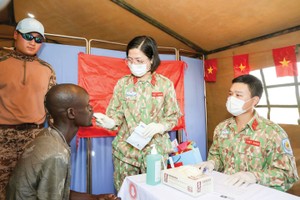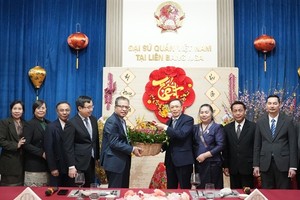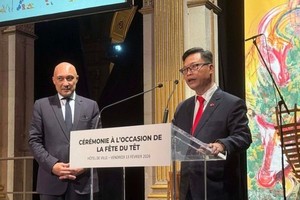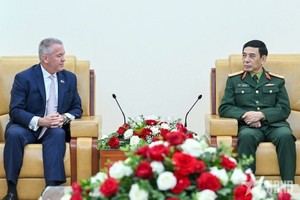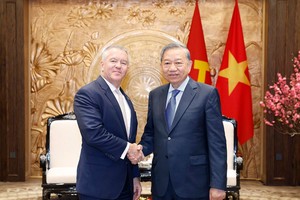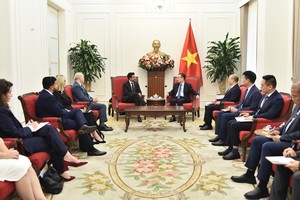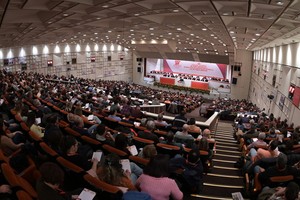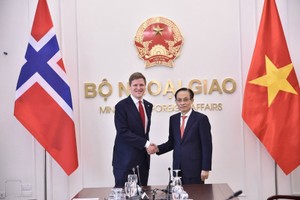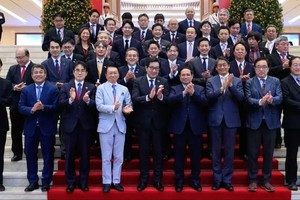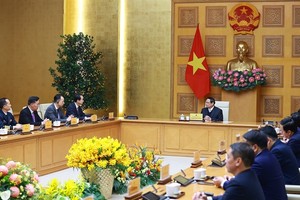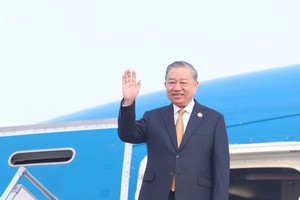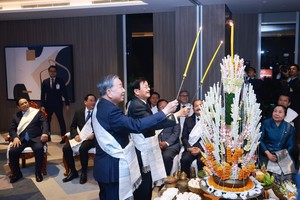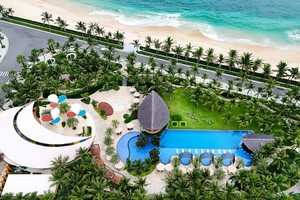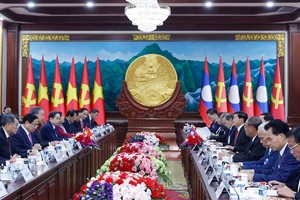United Nations leader Ban Ki-moon on Monday demanded UN access to the Syrian city of Al-Heffa, as regime helicopters fired on rebel stronghold towns, leaving more than 100 people dead.
On the political front, the newly elected leader of Syria's exiled opposition urged President Bashar al-Assad to hand over power to his deputy, in line with a plan based on a UN-backed transition in Yemen.
The Syrian Observatory for Human Rights said nationwide violence cost the lives of at least 106 people on Monday, including 77 civilians and 23 Syrian troops.
Reports of high daily death tolls are becoming the norm in Syria where over 14,000 people have been killed since an anti-regime revolt erupted in March 2011, according to the British-based Syrian Observatory.
UN leader Ban said in a statement released by his office that "intensive military operations" by government forces against Homs and firing from helicopters on other towns had caused heavy civilian casualties.
Residents and activists say government helicopter gunships have strafed rebel positions in Al-Heffa, a town of 30,000 near the border with Turkey, and tanks were parked on the outskirts.
Ban joined UN-Arab League envoy Kofi Annan in demanding that unarmed military observers from the UN Supervision Mission in Syria, UNSMIS, be let into Al-Heffa.
One Syrian activist broke down in tears as she told AFP via Skype that tanks were parked on the edge of Al-Heffa, a town of 30,000 set in rugged countryside near Turkey.
"They have never come this close before," Sem Nassar said, adding: "There's only one doctor working to treat the wounded in the town," and that most residents had fled.
Such reports prompted Washington to voice concerns Assad's regime is planning to carry out new atrocities, after the massacre of 55 people last week in Al-Kubeir and at least 108 near Houla on May 25-26.
"The United States joins joint special envoy Kofi Annan in expressing deep alarm by reports from inside Syria that the regime may be organising another massacre," US State Department spokeswoman Victoria Nuland said.
Nuland said the tactics showed the Assad regime, cracking down on the most severe threat to his family's four-decade rule, was "increasingly desperate."
Meanwhile US Defense Secretary Leon Panetta admitted that there is "no silver bullet" to fix what he called a tragic, complex situation in Syria, but renewed calls for the regime to relinquish power.
Speaking to members of the American-Turkish Council, Panetta said President Assad's forces had perpetrated "outrageous violence."
"From every angle the situation in Syria is enormously complex and tragic. There is no silver bullet," said Panetta, according to a prepared text of his speech.
His remarks highlight that the Pentagon chief and President Barack Obama's administration remain reluctant to back military intervention in Syria.
Russia has strongly opposed the prospect of force to remove Assad, whose family has been a key ally of Moscow since the Cold War.
"The concern has been that putting foreign military forces into this situation... will turn it into a proxy war," Nuland said.
A spokesman for UN-Arab League envoy Annan said he was "gravely concerned by the latest reports of violence coming out of Syria and the escalation of fighting" by both sides.
The former UN chief, who drew up a faltering peace plan, was referring to shelling in Homs and the reported use of mortars, helicopters and tanks in Al-Heffa.
-- Women and children trapped --
The bloodshed has persisted despite the presence of 300 UN observers charged with monitoring a putative April 12 truce.
The UN mission also expressed concern about the escalation of violence in Homs.
The UN Supervision Mission in Syria (UNSMIS) said it had received reports of "a large number of civilians, including women and children trapped inside the town and are trying to mediate their evacuation."
Activists said Khaldiyeh and two other neighbourhoods were under siege and Red Crescent teams were denied access.
UN observers also reported heavy fighting in Rastan and Talbisseh, north of Homs "with artillery and mortar shelling, as well as firing from helicopters, machine guns and smaller arms," the UN statement said.
The Observatory's Rami Abdel Rahman said assaults elsewhere, such as the central province of Hama and northwestern Idlib, showed "the regime has decided to escalate militarily."
With Annan's peace plan faltering, world powers are divided on how to stop the crisis. The West has called for tougher sanctions and for Assad's departure, while Russia and China reject any foreign interference.
Russian Foreign Minister Sergei Lavrov will visit Iran on Wednesday to discuss a Moscow conference on Syria, among other issues.
France said it will talk to Russia about the idea, as it urged the new head of the Syrian National Council, Abdel Basset Sayda, to unite the opposition.
Sayda called on Assad to "leave office to his vice president" Faruq al-Shara, Anatolia news agency reported.
Russia is under growing pressure to back Assad's departure as a first step in a peace accord that would see his inner circle assume command in the interim, as happened in a UN-backed transition in Yemen.
